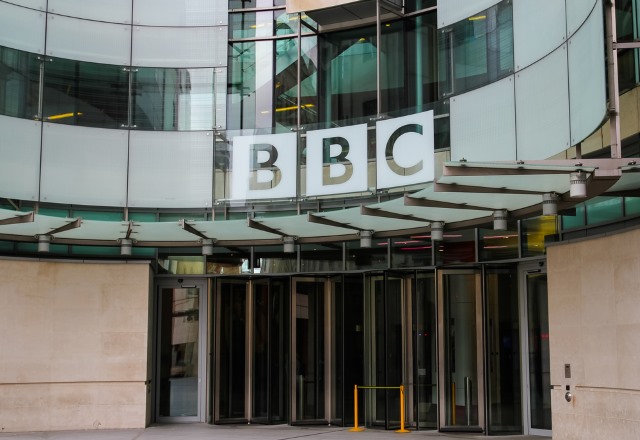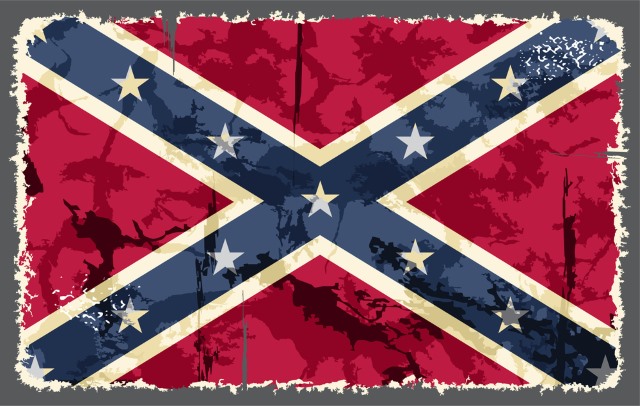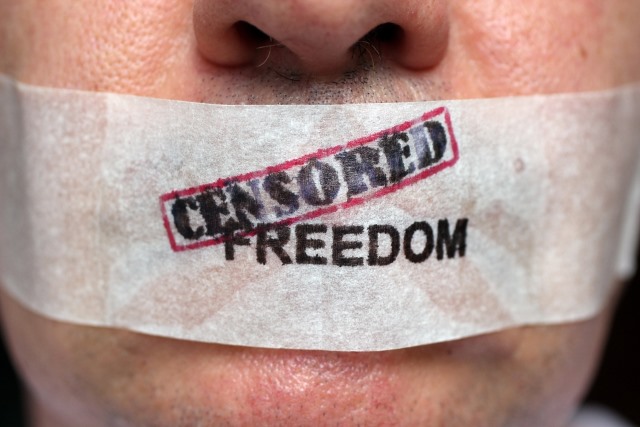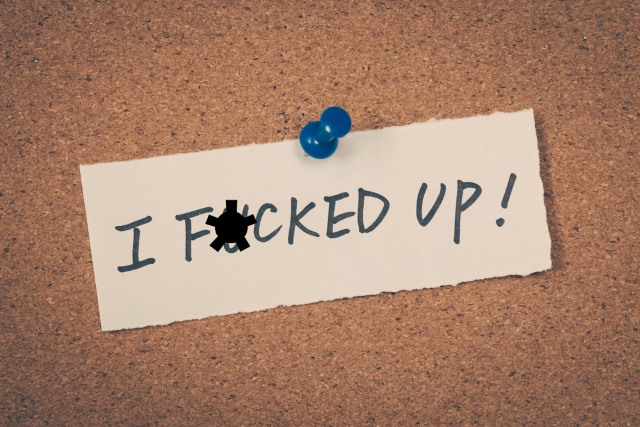
Reddit kills 'unfettered free speech' with half-hearted censorship
It's been a tumultuous time at Reddit recently. The self-styled (albeit slightly sarcastically) Front Page of the Internet raised the ire of some users several months ago when it started to impose stronger restrictions on the type of content that could be posted. It started with restrictions on certain types of explicit content, followed by the killing off of harassment, hate, and abuse subreddits.
After the site fired AMA (Ask Me Anything) coordinator Victoria Taylor, there was an uprising. Moderators were unhappy, users were unhappy, and CEO Ellen Pao ended up resigning. As users left in their droves, finding solace in alternatives such as Voat, the site scrabbled to defend itself both to users, employees, admins, and volunteers. Today in an Ask Me Anything session, Reddit co-founder Steve 'spez' Huffman introduced a swathe of new restrictions on what users are allowed to say. In public, at least.

Pressure mounts on Google to extend Right to Be Forgotten to US
The Right To Be Forgotten has proved controversial. A little over a year ago Google was told by a European court that it should accept requests to remove from search results pages that are "inadequate, irrelevant or no longer relevant". Now, calls for the scheme to be extended to the US are growing ever-louder.
Consumer Watchdog not only says that the Right To Be Forgotten should be brought to the US, but also that Google's refusal to do so is an "unfair and deceptive" business practice. The consumer group is writing to the Federal Trade Commission calling for the search giant to be investigated and forced to consider the removal of certain search results. As has been proved in Europe, it's something that is not without controversy.

Social network Facegloria bans swearing, gay content, and sin
Need a social network to connect with friends and likeminded individuals? Take your pick; there are dozens to choose from. Facebook remains by far the most popular and, as it is used by real people, it is filled with everything that makes up life -- the good and the bad. In response, a group of Evangelical Christians in Brazil set up Facegloria with the aim of becoming "morally and technically better than Facebook".
Actually the real aim of the site is to promote Christianity -- to the extent that rather than a Like button, there is an Amen button. Think "godbook", if you will. Of course there are restrictions -- religion isn’t meant to be fun, you know. On the list of banned content is violence and pornography, swearing (there are literally hundreds of banned words), anything that violates "biblical principles", and depicting or referring to homosexual activity.

Reddit blocked in China, Wayback Machine blocked in Russia
It is becoming increasingly common for governments around the world to block access to websites they don’t approve of for one reason or another. The most frequent censor is China, and the latest site to fall victim to the Great Firewall of China is Reddit. If you're not able to pop over to China to check whether the site is blocked, you can use Blocked In China to test whether any site is accessible from within the country.
This is not the only site which people are having trouble accessing. Over in Russia, the Internet Archive -- responsible for the nostalgia-inducing Wayback Machine -- is also blocked. While the blocking of Reddit in China has probably been done on purpose, the same may not necessarily be true in Russia.

BBC reveals links censored by Google's Right To Be Forgotten
Google's Right To Be Forgotten gives people the chance to request the removal of search results linking to pages that contain information they believe to be "inadequate, irrelevant or no longer relevant". Google says it rejects more requests than it complies with, but there is still concern that the company is not providing enough detail about what it is doing. There have been calls for greater transparency from the company about the censorship that is taking place.
The BBC has published a list of all of the stories from its own site that have been removed from Google search results. The corporation announced that it wanted to be clear with people about which links has been deleted and plans to update the list each month. It already extends to nearly 200 entries and the BBC explains that while the stories may no longer be shown by Google, they are still available uncensored on the BBC site.

Apple starts to cull apps that feature the Confederate flag from the App Store
Following the Charleston shootings in which nine people were killed, debate has raged about whether it is reasonable to display the Confederate flag. A symbol of the South for some, a racist throwback for far more, the flag has already been ditched by the likes of eBay and WalMart. Now Apple has started to clear the App Store of apps that feature the rebel flag.
Developers have been contacted by Apple with a warning that their apps are being dropped "because it includes images of the confederate flag used in offensive and mean-spirited ways". While this is clearly the case in some instances, the new policy has also affected Civil War games that include the flag for historical reasons.

Russia's secret online pro-Putin propaganda army outed
The internet is an incredibly powerful propaganda tool, and this is something that certain countries around the world have latched onto. The likes of China, North Korea, and Russia have long been either accused of, or known to, use the web to spread government messages and controlling what others are able to publish online.
Now a court case in Russia has blown the lid on a secretive agency which promotes a positive image of Vladimir Putin online. The Agency for Internet Studies operates from St Petersburg and has been dubbed a "troll factory". An employee took the agency to court for allegedly making labor violations and underpaying workers. Unwillingly thrust into the public eye, the agency is keen to wrap things up quickly to avoid further scrutiny.

What is Facebook not telling us about machiavellian censorship?
Just a few days ago the Electronic Frontier Foundation published its annual Who Has Your Back report looking at how various technology companies treated customer privacy. The report makes for interesting reading, but it also raises some questions. One question that has cropped up several times is "how the hell did Facebook get a rating of 4 out of 5!?"
As well as rating Mark Zuckerberg's social network in terms of its privacy policies and how it responds to government data request, the EFF also probes the hidden censorship that appears to be going on. There have been numerous examples of blatant censorship from Facebook -- including blocking certain pages in Turkey -- and while this is worrying (particularly when the social network's founder is looking to connect the world to the web with Internet.org) what is perhaps more concerning is the censorship we don't know about. The silent censorship that's going on the in the background.

Reddit refugee camp Voat dropped by German webhost for 'political incorrectness'
A couple of weeks ago Reddit announced that it was closing down a number of subreddits with harassing subject matter. This came a few month months after a decision to ban content that included images or videos of non-consensual sex. In protest, groups of users switched allegiances and moved to the Reddit clone site Voat.co -- which prides itself on not censoring any content.
Voat.co has been around for a little while, but the site saw its membership swell as former Reddit users jumped ship. Over the last couple of weeks, the "censorship-free community platform" has battled DDoS attacks and was dealt another blow yesterday when its German hosting provider cancelled its contract. The reason given was that the server was being used to host content that is "politically incorrect". But this does not mean that the site is dead.

Google to block revenge porn from search results
Google is to start honouring requests to remove links to revenge porn from its search results. In a move that has echoes of the Right to Be Forgotten in Europe, today's announcement indicates that the search giant is now willing to start censoring search results if people request that explicit personal images of them be removed.
This is not supposed to be carte blanche for people to request the removal of any image they are unhappy with -- it is a move designed to target images that might be posted to sexploitation websites with a view to bribing their subjects.

Sony Pictures hack caused accidental broadcast of expletive-filled movie
When Sony Pictures was hacked last year, one of the primary concerns for the company was the leaking of a number of unreleased movies. But in the UK, there were other consequences, including the daytime broadcast of the movie The Verdict complete with a smattering of four-letter expletives.
Sony Pictures Entertainment's subsidiary company Media Mix Limited owns the TV station Movie Mix, and on 14 December the channel broadcast an edit of the movie peppered with f-bombs. In the middle of the afternoon. The channel's excuse? That the "safe for daytime" broadcast version of the movie had been deleted by hackers.

Reddit starts killing off harassment subreddits
Reddit is both famous and infamous. It's a source of news, a platform for disseminating such delights as the pictures that came out of the Fappening, and home to the ever-interesting Ask Me Anything sessions. But like any social website, it also has problems. Like Facebook, Twitter, and other sites, there are issues with spam, trolling, and abuse. Reddit has a particular problem with sections that are dedicated to harassing and abusing groups of people.
Now the site is fighting back. It is taking a proactive approach and removing subreddits whose raisons d'être are the harassment of people. The cull initially sees the removal of five offending subreddits, but the Reddit team explains that only one with a sizeable userbase is affected -- r/fatpeoplehate.

EFF fights abuse of court orders to close sites in the wake of Grooveshark
The EFF (Electronic Freedom Foundation) has involved itself in lots of online battles -- including the fightback against NSA surveillance, and the drive for net neutrality. The latest fight sees the organization joining forces with web performance and security firm CloudFlare in tackling the site blocking activities of the record industry.
The digital rights group is battling record labels which it says are forcing web firms into becoming the "copyright police". The move was prompted by the closure of Grooveshark, a music website run by one of CloudFlare's clients. It re-opens the question of who is ultimately responsible for the content that appears on sites -- those posting it, those hosting it, or any other company involved in the delivery?

Pirate ebook websites to be blocked in UK
Online piracy is usually associated with music, movies, and software. But the ever-growing popularity of ereaders such as the Amazon Kindle has also led to a burgeoning ebook piracy scene. The UK has been trying to clamp down on piracy recently, and the latest target is a raft of sites offering illegal downloads of ebooks.
We've already seen the government would like to restrict access to some online content such as porn, and torrent sites have been blocked at ISP level. Now a High Court ruling means that a number of big ISPs are to be forced to block access to major ebook sites.

Leaked document shows Europe would fight UK plans to block porn
Before the UK elections earlier in the month, David Cameron spoke about his desire to clean up the internet. Pulling -- as he is wont to do -- on parental heartstrings, he suggested that access to porn on computers and mobiles should be blocked by default unless users specifically requested access to it. This opt-in system was mentioned again in the run-up to the election as Secretary of State for Culture, Media and Sport, Sajid Javid assured peopled that the party "will age restrict online porn".
But it's not quite that simple. There is the small problem of Europe. A leaked EU Council document shows that plans are afoot to stop Cameron's plans in its tracks -- and with the UK on the verge of trying to debate a better deal for itself within Europe, the Prime Minister is not in a particularly strong position for negotiating on the issue.
